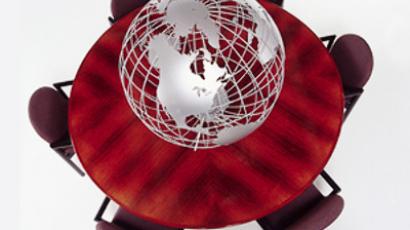Medvedev, Obama meet in Washington
US President Barack Obama and Russian President Dmitry Medvedev met in Washington June 23 to discuss everything from economic cooperation to arms reduction.
International security analyst Dex Torricke-Barton said that the meeting was: “Enormously encouraging for the future of US-Russian cooperation. There has been an enormous amount of progress over the last few months, over the last 17 months, in the relationship.”
While the relationship has improved, Torricke-Barton argued that the issues on the agenda have mainly focused on nuclear and international security issues, and that this meeting is changing that.
Prior to coming to Washington, Medvedev visited Silicon Valley in California, making stops at a number of top tech companies, including Apple and Twitter.
One of the important topics Obama and Medvedev discussed was a desire to bring Russian into the World Trade Organization (WTO). Since 1993, Russia has been working toward membership in the WTO, but political agendas have blocked its acceptance.
"The fact that Russia is at last on the threshold of joining an organization which is absolutely central to revitalizing Russia’s place in global trade and increasing its strength as a global economic power is really exceptional,” said Torricke-Barton.
The two world leaders stressed that they plan to move forward with the issues they agree on and not let issues they disagree on stifle their relationship. The two nations are increasingly working together and are likely to continue to do so in the future.
“We are seeing two countries which are really having a much more mature attitude towards problems, attempting to leverage the greatest capabilities of both sides and then allowing whichever one has the strongest position to lead to take that position,” said Torricke-Barton.
Personal relationship critical for progress
Charles Kupchan, a senior fellow at the Council on Foreign Relations, said that the fact both Obama and Medvedev get along and share many personal qualities is a good sign. It shows an improvement in the US-Russia relationship.
"There’s a real momentum to the relationship that has been the product of the reset,” said Kupchan.
Kupchan argued that the new START treaty and the increased cooperation on Iran and Afghanistan have provided a strong foundation for warmer relations between Russia and the United States.
“I think over the horizon there are some tough nuts to crack; missile defense, Georgia, maybe NATO enlargement. But, right now I think the idea is let’s take those really though issues and put them to the side and build trust, build a relationship and low and behold maybe one, two, three years down the road we’ll come back to the tough things and find that because we can trust each another we can resolve them,” said Kupchan.
Kupchan argued Russia is moving more towards the west and looking to integrate and expand its markets and that a lasting friendship between the US and Russia is possible. There will be ‘good days and bad’, but starting with economics and moving to the more challenging issues later on is the way to go.
Agreement on trade and economic ties
Blogger Mark Adomanis of True/Slant’s On Russia blog agreed that increased economic and trade ties are paramount.
There needs to be a massive expansion of trade in the US-Russian relationship, argued Adomanis.
“If you look at, for example, America and China, they have disagreements, but there is such a massive web of economic exchange that bind them together, the disagreements are pretty grounded in a very limited sort,” said Adomanis.
He explained that the US-Russia relationship needs, over time, to develop bilateral trade to foster a strong relationship.
Adomanis continued, arguing that the ratification of the START treaty is going to be a “real mess” because many Republican politicians oppose the treaty.













